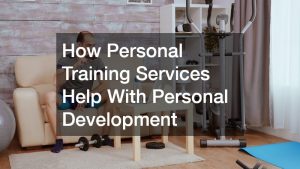Clothes strewn everywhere. Useless, damaged furniture stacked on top of the other. Papers, plastic containers, pots and pans, appliances both working and broken. It is near chaos inside a hoarder’s enclave. If you’ve ever seen the sorry state of a hoarder’s home, then you can certainly understand how there can be numerous commercial cleaning business opportunities. It usually takes a dedicated team and several grueling days to clear things out.
Hoarding can be a serious problem
In one episode of a series depicting hoarders, the cleaning crew even found the skeleton of a dead cat. There are many reasons why people hoard things. Hoarding can be a problem on its own or can also be considered as a sign of a deeper, underlying problem. This behavior affects not only themselves but also the people around them.
The Anxiety and Depression Association of America noted that “Hoarding is a disorder that may be present on its own or as a symptom of another disorder. Those most often associated with hoarding are obsessive-compulsive personality disorder (OCPD), obsessive-compulsive disorder (OCD), attention-deficit/hyperactivity disorder (ADHD), and depression.”
Allowing things to hold power over us
 We may be quick to judge, but the tendency to hold on to things isn’t exclusive to hoarders alone. Most people do tend to keep things “just in case.” That’s fine. It’s okay to be thrifty, to be prepared, and to be frugal. In fact, it can be a positive trait. Vintage things can accrue higher value over time; there are investment pieces; there are also pieces that we give value to because of the memories they hold or how they make us feel. That’s fine too. We confer meaning and importance to things.
We may be quick to judge, but the tendency to hold on to things isn’t exclusive to hoarders alone. Most people do tend to keep things “just in case.” That’s fine. It’s okay to be thrifty, to be prepared, and to be frugal. In fact, it can be a positive trait. Vintage things can accrue higher value over time; there are investment pieces; there are also pieces that we give value to because of the memories they hold or how they make us feel. That’s fine too. We confer meaning and importance to things.
The problem is when we allow things to dictate how we feel about ourselves. The problem with consumerism is that it sees consumption as a good. However, mindless consumption has its drawbacks. It isn’t sustainable for one, and for another, it facilitates our attachment to things as symbols of our worthiness. When you derive your self-worth from things external to you, then that means there is a problem.
Breaking the cycle and finding a balance
Nothing lasts forever, not even your new state-of-the-art phone, computer, car, or whatever gizmo it is you are in love with at the moment. You know this because next year you’re going to be seeing a different iteration of the same gadget, or maybe a massive new overhaul that completely eclipses what you have now. And anyway, what you have now is designed to be finite. It has a kill switch, that’s what planned obsolescence is. You’re always going to want to upgrade or buy another because products that last a long time don’t make their producers much money – and all businesses want to turn a profit.
Choosing a greener, more sustainable way of life is becoming on trend. People are seeking a more sustainable way of life – to live with intention and mindfulness and take only what is needed, what is necessary and essential. Evaluate your self and decide whether it’s time to do so as well. If you display behavior typical of hoarders, it may be time to seek professional help.







